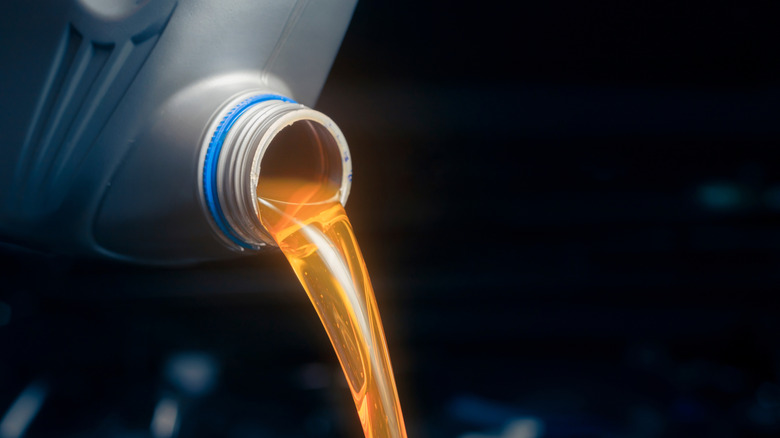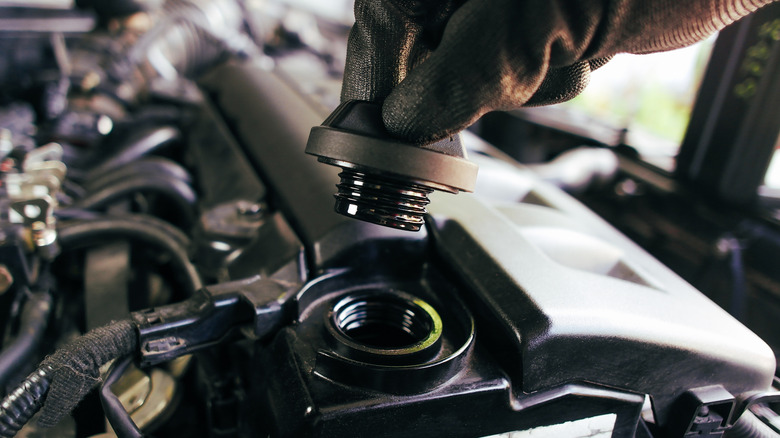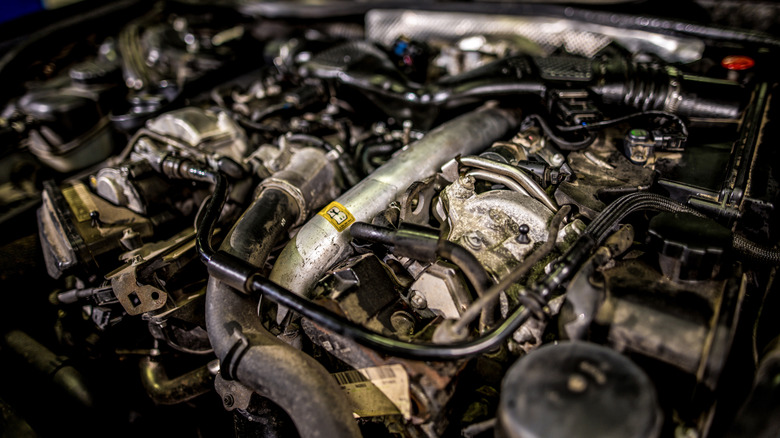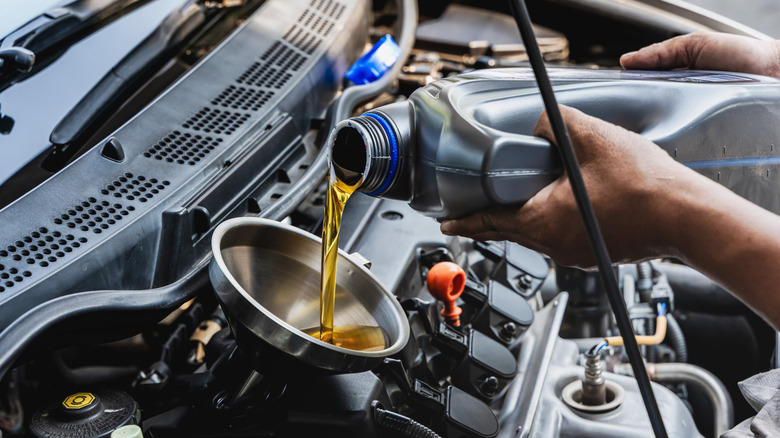An oil change is an important starter process for anybody studying about automotive upkeep, however choosing the proper oil for the engine to is simply as essential as method, particularly when confronted with deciding whether or not to make use of diesel or standard engine oil.
Very like the gasoline you fill into the tank of a diesel or gasoline automotive, the engine oil you utilize to lubricate the motor can be subtly completely different. Every oil is engineered to optimize the efficiency of a diesel or gasoline engine by way of its make-up.
Whereas the fundamental composition of the 2 oils is comparable, qualities just like the viscosity of the oil and the components used differ between the 2 merchandise. So, to make sure you’re utilizing the precise oil for the one that you love challenge automotive, we have rounded up the primary variations between diesel and standard engine oil.
Typical oil is standard oil
As a result of most of us drive standard gasoline vehicles, we’ll begin with the engine oil we’ll all be most aware of. Typical engine oil is created from a base oil, normally derived from crude oil or manufactured synthetically, that’s then mixed with components to scale back put on, forestall corrosion and cease the oil from oxidizing. Typical oil additionally contains particular detergents to maintain your engine clear, in addition to anti-foaming components, defined producer Pennzoil.
These components are blended into the oil to extend the lifetime of your engine. They’re particularly formulated to wash away contaminants produced when gasoline burns to forestall buildup and deposits within the engine.
If components like this weren’t blended in along with your engine oil, contaminants may shortly construct up within the oil and you would be required to swap it out far more frequently. Because it stands, you in all probability solely have to exchange your oil each 5,000 miles or so.
Diesel oil is diesel oil
Diesel oil, nonetheless, is slightly completely different because it’s engineered to work finest in an engine that burns diesel gasoline. The largest differentiator is that it’s a lot thicker than conventional oil, and it additionally comprises completely different components, as Equipment Lubrication explains:
Essentially the most prevalent are overbase detergent components. This additive has a number of jobs, however the primary ones are to neutralize acids and clear. Diesel engines create an important deal extra soot and combustion byproducts. By means of blow-by, these discover their means into the crankcase, forcing the oil to cope with them.
Diesel engine oils additionally comprise a compound that helps with put on, known as zinc dialkyldithiophosphate, or ZDDP. This compound may cause havoc with the catalytic converter in a gasoline automotive, whereas diesel CCs are designed to cope with the compound.
And by no means the twain shall meet
The injury that ZDDP may cause to your gasoline automotive’s catalytic converter is simply one of many the reason why it is so essential to make sure you’re filling your automotive up with the proper of oil.
The second massive downside you may face stems again to the thickness of diesel oil. The upper viscosity of the liquid implies that extra friction could be generated between the oil and the engine parts, inflicting it to warmth up. This shortens the lifespan of the oil and can even enhance put on on parts because the thicker oil could not be capable to stream the place it is wanted most.
Due to this, it is best to be sure to’re utilizing diesel engine-specific oil solely in motors that run on diesel, and standard oil in your gasoline powered automotive. Now, take this newfound information and go forth to your first oil change! Good luck.





